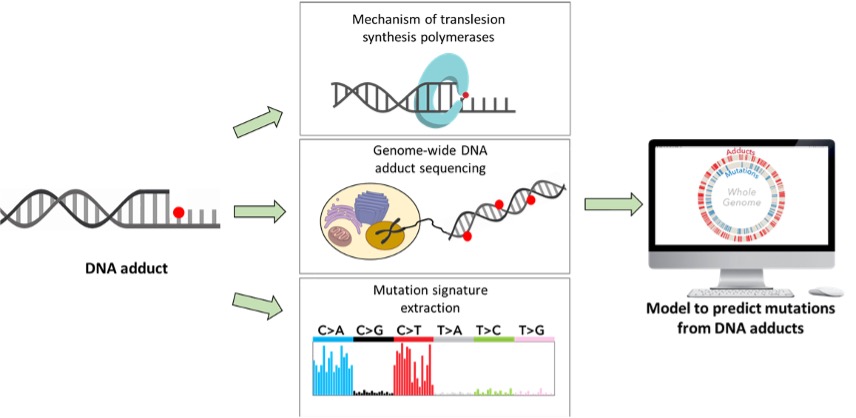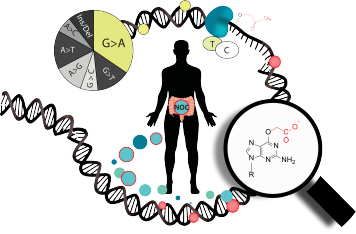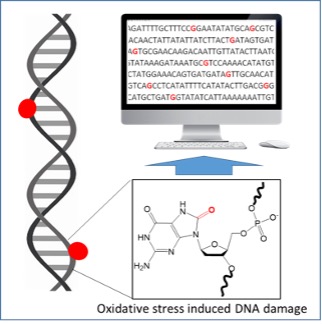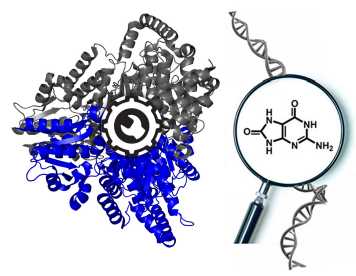DNA Damage and Mutagenesis

Cellular DNA is constantly damaged by exogenous and endogenous agents. These stressors can damage our genome by covalently binding to DNA bases changing their chemical structure and leading to addition products called DNA adducts. As all processes of life depend on the reliable transmission of the genetic information, multiple mechanisms ensure genome integrity by repairing the damaged nucleobases generated by exposure to genotoxic agents. Additionally, translesion DNA synthesis (TLS) polymerases allow for DNA adduct tolerance but often at the cost of mutations and therefore those enzymes have a critical role in the initiation and development of cancer. These observations underline the importance of mapping DNA adducts at a genome-wide level and dissecting enzymatic mechanisms responsible for DNA adduct tolerance.
Projects

Mutagenicity of O6-Carboxymethylated DNA. Is O6-CMG the chemical link between meat consumption and cancer?

Innovative sequencing methods for DNA oxidation damage. Unraveling patterns of DNA oxidation at single nucleotide resolution

Tailoring DNA Scissors with Engineered High Specificity Glycosylase Enzymes Generating novel glycosylases for diverse biotechnological applications via state-of-the-art protein engineering